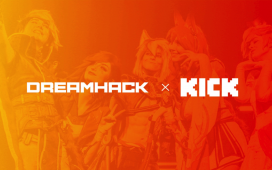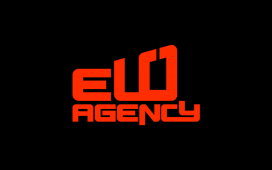Less than a decade ago, a long-term career in gaming was not just unheard of, but laughable to many in traditional sports. Now, as top gamers are reaching celebrity status and making late-night talk show appearances, there are deals to be made—ushering in a new era of talent agencies in esports.
 They might not have had the star power that they do today, but esports players have always sought help making their next career moves, says Justin Warden, CEO, and co-founder of esports marketing agency Ader.
They might not have had the star power that they do today, but esports players have always sought help making their next career moves, says Justin Warden, CEO, and co-founder of esports marketing agency Ader.
“There was this assumption that players didn’t have managers before,” Warden told The Esports Observer. “Most players had managers but they were their best friends or brother. What you’re seeing now is more and more players and streamers seeing the opportunity to make money with brand partnerships with an agent or manager.”
 Andrew Temkin, Ader’s chief revenue officer, added that players are moving toward brand managers because team audiences are built through personal brands.
Andrew Temkin, Ader’s chief revenue officer, added that players are moving toward brand managers because team audiences are built through personal brands.
“Teams have viewership, too, but [just as] with the NFL or [other] sports, you have an affiliation with the team—but as esports become more popular people want more personal connections with the players,” said Temkin, who predicts that, as the esports ecosystem evolves teams will act less like personal managers to their teams.
“It will form more like traditional sports,” he said, “where players have personal agents and/or brand managers and talent agents. I think the player should have every right to seek management and seek its own opportunities.”
 Travis Mynard, an esports agent at United Talent Agency (UTA), attributes the rise of agencies in esports to the fact that players are beginning to realize their worth.
Travis Mynard, an esports agent at United Talent Agency (UTA), attributes the rise of agencies in esports to the fact that players are beginning to realize their worth.
“There isn’t an esports industry without these players,” said Mynard. “Esports is pretty unique in that I think teams were [initially] looking at players as assets or inventory to attract sponsorships, which is fine. But on the other hand, players need to have an identity and brand of their own.
“Players realizing that is what evolved into what agents are doing now—the ability to carve out sponsorships that don’t compete with the organization or league and get them to a place where they can start building their own brands.”
 While representation for players has become more common, navigating the esports space is still the “Wild, Wild, West” in terms of how to approach talent for deals, says Steven Lai, vice president of influencer marketing & content strategy at ION.
While representation for players has become more common, navigating the esports space is still the “Wild, Wild, West” in terms of how to approach talent for deals, says Steven Lai, vice president of influencer marketing & content strategy at ION.
“All the top players now have professional agency representation,” said Lai. “Where the line sits between who gets CAA or UTA representation is different, and that line is constantly shifting between games and audiences. That’s why agencies like us exist—to navigate it on behalf of our clients.”
Brands Join the Matchmaking Lobby
Non-endemic brands, hoping to reach a young, tech-savvy audience, are turning to esports sponsorships at a growing rate. In Q3 2019, The Esports Observer reported a 74% increase in non-endemic sponsorship deals over Q3 2018.
Sometimes, brands find it more comfortable to negotiate through an agency because that’s the kind of media purchase they are used to, said Temkin.
“Brands find it easier to spend through us, knowing they get the same type of value as traditional media,” Temkin explained. “[Esports media buys have] become more professional over the years, whereas the previous managers’ education or expertise might not have been up to par.”
Like any marketing investment, brands are weighing the risks versus rewards when partnering with any esports event or organization. Agents, therefore, have to take this into consideration when selling their clients’ star power.
“Brands are always looking at return on investment (ROI), so they’re looking at player audiences,” said Mynard. “They want to see what the name on the back of that jersey can bring with it. Teams are out there gaining fans that the players have acquired and brought with them.
“Team-level sponsorships are doing a really great job of recognizing that power comes from the players, not just on the team level,” said Lai, “especially as players increase their own marketing of who they are. Brands are interested in working with personalities more and more. This is akin to the influencer space where [brands look for] that personal connection that influencers have with their audiences.”
Getting Influential
Brands often include popular online personalities into their marketing strategies, and video game streams have become a hub for such partnerships. Agents agree that gaming influencers bring something different to the table than their self-taking, travel brag counterparts—an engaged community.
“The gaming audience is outspoken,” said Lai, “they know what they like and what they don’t like. Other industries may not have that kind of window into how you’re judging the partnerships that you have.”
Another advantage of working with a gaming influencer is the viewership retention and the connectivity of their audience, said Temkin.
“Spending time watching a live stream takes a lot of dedication, as opposed to the second it takes to like a photo,” he explained. “It’s a very different kind of relationship, which is why you see brands like Nestlé and Marvel getting involved. More than trying to reach gamers, [these brands] invest in gaming personalities because the relationship is that much deeper.”
Advertising on Twitch is “the new infomercial,” said Warden, adding that brand placement can be “baked into” a stream, making the message ad blocker proof.
“Infomercials are 40 minutes that tell you about a product and that’s the exact same thing as watching a sponsored stream on Twitch,” he said. “That kind of engagement is so hard to compare [with other mediums]. That’s why you’re seeing so many brands starting to invest in livestreaming—they want that audience relationship.
“What Twitch is showing over and over again is that when viewers get excited about something, it gets this viral effect. Just four years ago, a sponsored streamer was considered a sell-out. Now, they’ve made it.”













